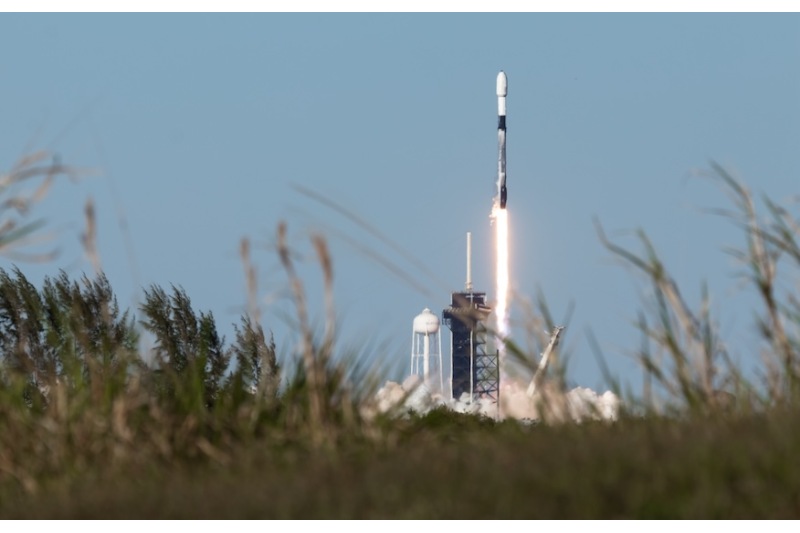Launching Eutelsat 36D, SpaceX Lands the Rocket on the Seventh Anniversary of its Reuse

Eutelsat’s most recent geostationary satellite was launched by SpaceX on March 30. The journey to a geostationary orbit slot over Africa and Eurasia is expected to take around six months.
Launch Complex 39A at Kennedy Space Center, Florida, saw the launch of a Falcon 9 rocket carrying the approximately 5,000-kg Eutelsat 36D, which was deployed into a geostationary transfer orbit 34 minutes later. The launch occurred at 5:52 p.m. Eastern time.
Equipped with seventy physical Ku-band transponders, Eutelsat 36D is built on the all-electric Airbus Eurostar Neo platform and provides TV and government communication services from 36 degrees East. The outdated Eutelsat 36B satellite operated by French fleet operator Eutelsat will be replaced by the steerable antennaed spacecraft.
Following positioning and successful completion of health checks, Eutelsat CEO Eva Berneke stated that the company plans to launch commercial services for Eutelsat 36D in the second half of 2024.
The spacecraft would share space with Russia’s RSCC-operated Ekspress-AMU1, popularly referred to as Eutelsat 36C. One of the satellites Eutelsat rents capacity from, Ekspress-AMU1, has been affected by sanctions as a result of Russia’s conflict in Ukraine.
Anniversary of Reuse
After launch, the rocket’s first stage made a safe landing on a droneship in the Atlantic Ocean, making SpaceX the company that has returned a Falcon 9 booster for reuse 273 times.
On March 30, 2017, SpaceX launched the first Falcon 9 rocket that was reused for a customer, seven years ago, on a mission for SES of Luxembourg.
This year, SpaceX has launched 30 missions, the most recent being Eutelsat 36D.
However, a little over four hours later, SpaceX launched a number of satellites from a nearby pad at the Cape for its Starlink low Earth orbit (LEO) broadband constellation.
Due to bad weather, SpaceX had canceled its scheduled launch of an additional set of Starlink satellites from Vandenberg, California, on March 30.
After acquiring OneWeb last year, Eutelsat now runs a network of over 600 low-Earth orbit satellites in addition to 35 geostationary satellites.
By the end of June, the business anticipates having finished 90% of the ground network OneWeb requires for fully worldwide services.
Multi-orbit capabilities, according to Eutelsat, will provide it an advantage over Starlink and other single-orbit constellations by providing more network redundancy and flexibility to commercial and government customers.